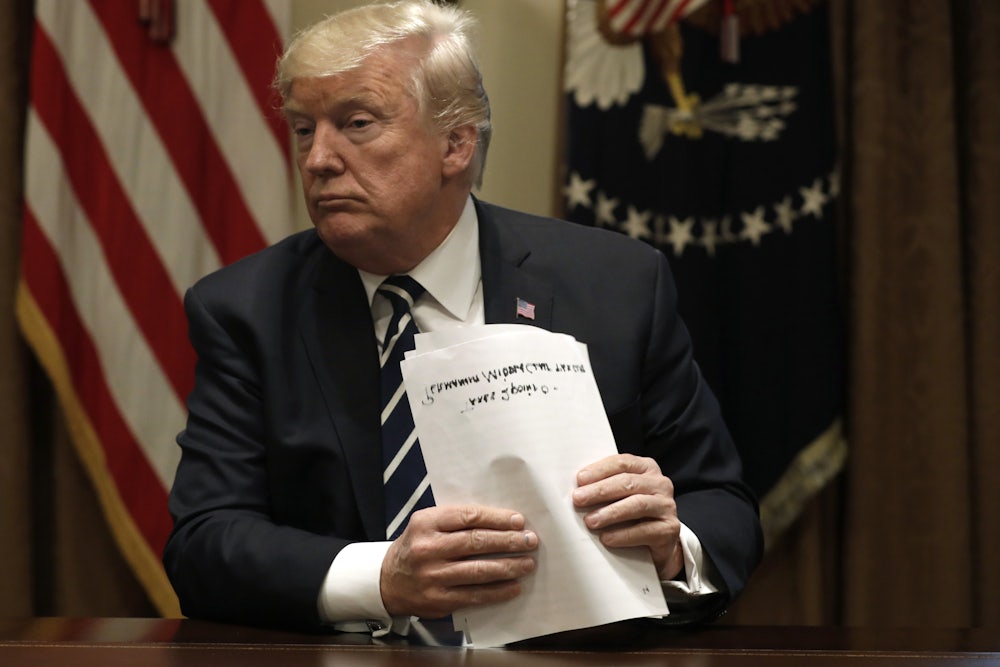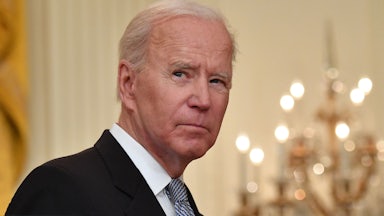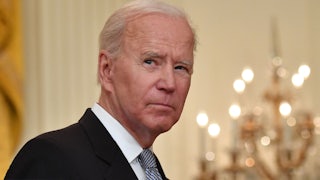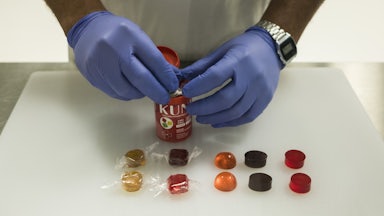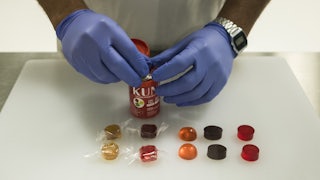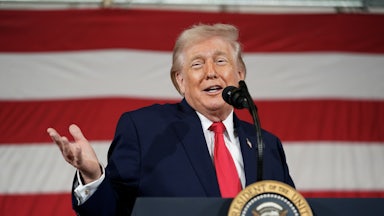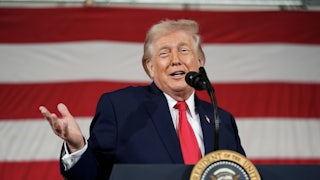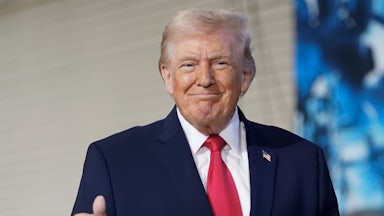The most notable aspect of Donald Trump’s federal indictment for allegedly mishandling classified documents, as I have previously argued, is just how unnecessary it was. The Department of Justice was extraordinarily reluctant to bring charges against a former president and current presidential candidate. All Trump had to do was return the numerous boxes in which he kept attack plans and nuclear secrets (and maybe some golf shoes) and he would have gotten away with it. He probably even would’ve gotten away with blatantly talking about the various classified documents in detail had he done this, even if he did so after the DOJ opened its investigation into him.
Why he did this has always been a bit of a mystery, though why Trump does anything usually is. It’s never been a particularly interesting mystery, either—there’s no profound truth lurking somewhere deep inside his hulking frame, and anyone who tells you otherwise, usually in book form, is trying to sell you something (usually their book, which explains the profusion of Trump-focused volumes). Some have argued that Trump was trying to profit from the classified information he pilfered, but I assumed the truth was more banal: The documents simply made him feel important, as did talking about them with (and waving them at) friends and acquaintances.
One of the key elements of Trump’s whole deal is that nothing he does is really that surprising, even when it is objectively shocking. Acting erratically and defying behavioral and political norms is a feature, not a bug, of his political appeal: Being chaotic is proof to millions of voters who despise normal politicians that he’s not a normal politician. Not, of course, that Trump could change his behavior if he wanted to.
Still, we got a little more clarity earlier this week when CNN obtained an audiotape of Trump admitting to hoarding classified documents while showing them to people without the proper clearances—a former president admitting to a felony, in other words, if not multiple felonies. That is shocking. It was also maybe the third-biggest news story of the week, after Russia’s almost civil war and the ongoing environmental effects of Canadian wildfires.
The thing that stood out to me, however, wasn’t the fact that he admitted to the crimes of which he is accused, in part because he had basically already done that numerous times. Instead, the tape CNN acquired provided the clearest rationale yet as to why Trump held onto the boxes for so long. The reason is that he is truly, and perhaps world-historically, pathetic and abject.
The tape is easy enough to summarize. “I have a big pile of papers, this just came up,” Trump says to an aide. It was the summer of 2021, and he was at his Bedminster golf club—to where he had just transported several classified documents he knew he shouldn’t have. Trump was, at this point, concerned about reports that he wanted to strike Iran late in his presidency and was trying to claim that he had military plans in his hand that proved that the source of those claims—General Mark Milley—was lying. Here’s some of the transcript:
TRUMP: I just found, isn’t that amazing? This totally wins my case, you know. Except it is like, highly confidential, secret—
UNIDENTIFIED FEMALE: Yes.
TRUMP: This is secret information. But look, look at this. You attack, and—
UNIDENTIFIED FEMALE: Hillary would print that out all the time, you know, her private email.
TRUMP: She’d send it, no, she ... she’d send it to Anthony Weiner.
UNIDENTIFIED FEMALE: Yes.
TRUMP: The pervert.
UNIDENTIFIED FEMALE: Please print.
TRUMP: By the way, isn’t that incredible?
UNIDENTIFIED FEMALE: Yes.
Later in the meeting, Trump says point blank, “See as president I could have declassified it.… Now I can’t, you know, but this is still a secret.” His aide hilariously underlines this point by replying, “Yes. Now we have a problem.” Then Trump provides perhaps the clearest rationale yet for why he kept the documents: “It’s so cool. I mean, it’s so—look, her and I, and you probably almost didn’t believe me, but now you believe me.” The recording ends fittingly, with Trump asking for Diet Cokes to be brought in.
The invocation of Clinton and Weiner is both damning and petty and suggests one fairly banal motivation for Trump’s retention of classified information: the idea that everyone was doing this. (This is why he also can’t stop talking about the “boxes” of documents in Joe Biden’s “garage,” where Hunter Biden hangs out sometimes. This isn’t true—there is no evidence that anyone else was intentionally hanging onto classified information and certainly nothing to suggest that Biden willfully hung on to nuclear secrets or other information as sensitive as what Trump had in a bathroom in Mar-a-Lago.) But it isn’t the most important part.
It’s Trump’s sheepish “and you probably almost didn’t believe me” that stands out. Trump is hanging onto this information not just as a revenge plot but as a kind of prop: There’s an idea that he needs this information to prove that actually, he’s right about everything and the world is out to get him. His own aide, he seems to fear, would have believed that he wanted to attack Iran if not for the documents in his hand. He needs these documents to exonerate himself from the slings and arrows the world hurls at him—even though by doing so he is literally and openly committing a federal crime.
It goes beyond that, however. The documents are there as vestiges of his presidency: They’re accoutrements that prove that he was once a powerful man who could change the fate of the world with a word or the push of a button—or that he could simply push a button and get a Diet Coke, something he now has to shout for. Trump has always been incredibly sensitive to the appearance of power and prestige, usually in gaudy and self-defeating ways. He likes to look and seem important and influential, even if most of his adult life was spent as a laughingstock. The documents for him are “cool” because they prove that he really was important. Now he’s bragging about it to anyone who will listen—even an aide who’s paid to follow him around.
